Publicado el
Actualizado por última vez en
From July 10 to 12 2014, Abuja, the federal capital of Nigeria, hosted the third African governance forum. This is a United Nations led activity initiated in 2006 as part of the Millennium Development Goals. Under the theme “Connecting continents for enhanced multi stakeholder internet governance”, the objectives addressed at this third AfIGF included the usual concern of increasing awareness and capacity building on Internet Governance for African users, ensuring that the concerns of Africa are taken into account in the IGF process, strengthening the multi-stakeholder dialogue model for Internet governance in Africa, promoting the use of African languages in the cyberspace.
Co-organized by the Secretariat of the Economic Commission for Africa, the Federal Ministry of Communications Technology of Nigeria through the Nigeria Internet Registry Authority and the Nigeria Internet Governance Forum with support from APC, AFRINIC, ICANN, NIRA, OIF…, the meeting brought together more than 400 participants from government officials, academics, civil society organizations, private sector, research institutions, media, regional and international organizations from well over 20 countries.
Among the key issues raised during this meeting, are:
- Internet and Human Rights
Workshop panelists at the African internet governance forum discussed internet and Human Rights issues. The Internet and other communication technologies have created unprecedented opportunities to share information and knowledge. Besides, they constitute an open path for individuals and activists to hold accountable governments. But these new technological tools are vulnerable to exploitation by governments aiming to crush dissent and deny human rights. Therefore, AfIGF panelists explored ways to find the right balance between governments need to deal with serious issues such as security, hate speech, and the concerns to allow the free flow of online information without violating citizens rights to privacy for, these concerns have often served as pretext to engage in censorship or surveillance of the Internet. This rights-based internet governance approach was also underscored by APC representative Emilar Vushe who addressed the audience in her opening remarks by stating “The same rights that people have offline must also be protected online”
- Internet as engine for growth and development
It is well known that developed countries have made the most as concerning their use of the internet with up to date infrastructure. On the other side, Africa often lacks appropriate infrastructure (broadband) and literacy is still a huge concern. Africa, more than any other region of the world, has the most to gain from the internet. During the opening statement of the third AfIGF, Dr. Mrs Omobola Johnson, Minister of the Communication Technology of Nigeria said that the Internet can contribute up to $300 billion to Nigeria and other African countries GDP by 2025 against an estimated 18 billion in 2013. For our continent that lags behind the world in almost every economic indicator this translates directly to opportunities to generate income, to create wealth, to create jobs, new business opportunities. So, states were invited to encourage policies that drive affordability of the internet, to encourage broadband access policies and to encourage increase in investment of internet infrastructure especially in rural areas.
- The African Virtual Library and Information Network (AVLIN)
This is an initiative aiming to provide digitized full text resources to learners in Africa via the Internet, thereby contributing to the revitalization of education in Africa. This collection of electronic books (eBooks) can be accessed and used free-of-charge by any person living on the African continent. Individuals can access the library from any PC that is connected to the Internet in Africa. Workshop panelist at the AfIGF discussed this issue with emphasizes on the AVLIN concept and activities, identification and selection of virtual resources as part of the African Virtual Library. To our opinion, this is an initiative that would be of great help to both African students and African research institutions.
As concerning some of the shortcomings of this 3rd AfIGF, the National participation. It appeared during the session devoted to the updates from the five Sub-Regional IGF’s that only representatives from Benin, Nigeria and Kenya delivered reliable and relevant reports from their respective national IGF’s. Yet, African Internet Governance is a forum were “we need to identify and communicate the uniqueness of our environment and ensure that they are considered and are reflected in decisions that are taken at global levels” and as such requires participants with direct involvement within their country Internet Governance structures, regardless of their level of involvement.
Another shortcoming was the absence of African’s lusophone countries (Mozambique, Angola, Bissau-Guinea, Cabo Verde…) which is detrimental to the success of a continental and inclusive event.
Overall, we must note that the 3rd African Internet Governance Forum was largely successful. This face to face meeting gave us a unique chance to meet and share with some members of the network. We attended panel discussions that further broaden our minds on topics such as Policies enabling access, IGF and the future of the Internet Ecosystem. Attending this regional IGF under the APC Member Exchange and Travel Fund (METF) has also provided us with new skills and knowledge to successfully taking part in our national IGF.


